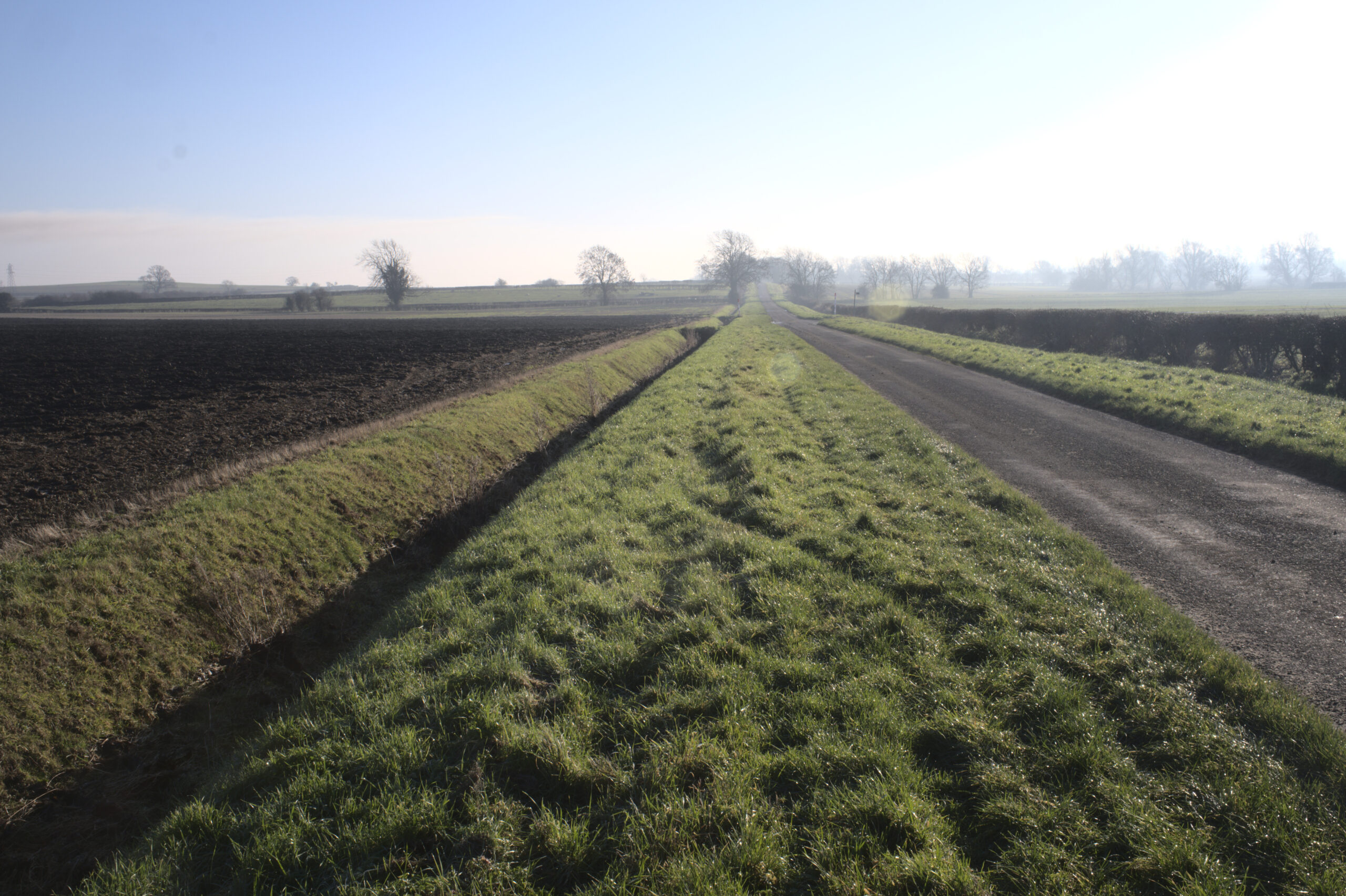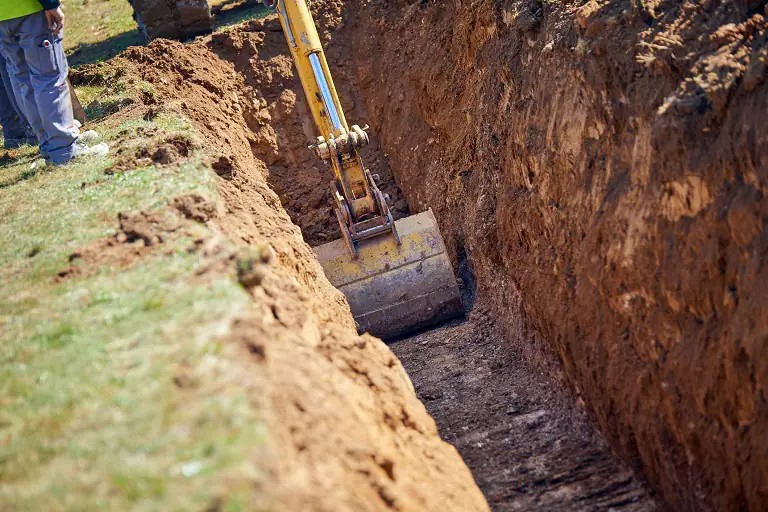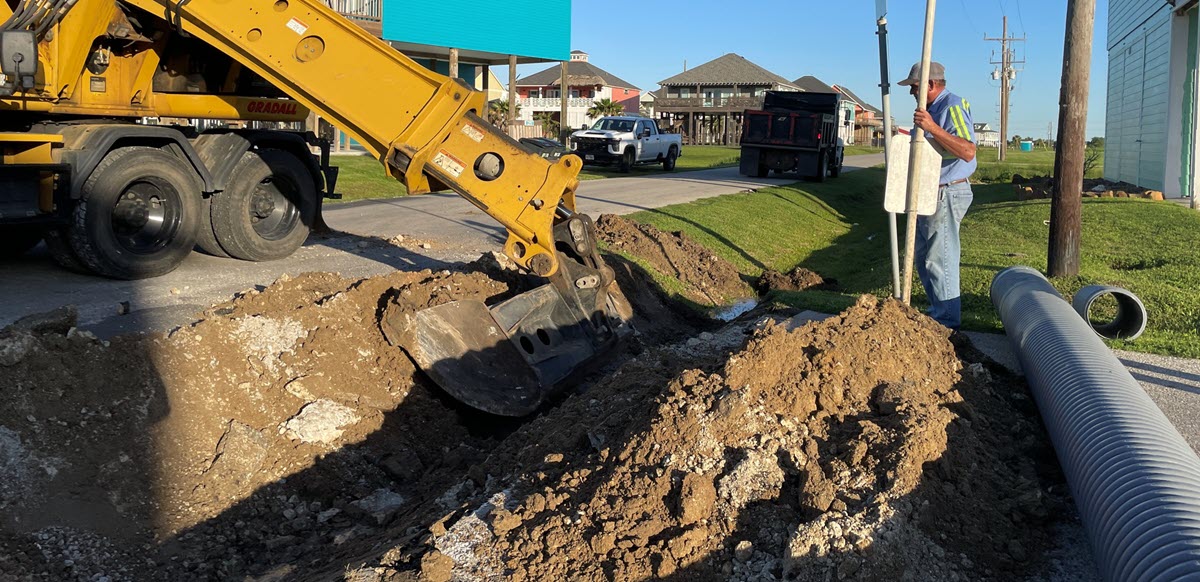Ditch Digging Servicesin Auburn Hills MI
Precision Ditching for Effective Water Drainage
We Are Locally Owned & Operated For Over 37 Years
Contact Us Today!
We Serve Businesses In And Around The Following Cities:
About Ditch Digging Services
A Comprehensive Guide to Ditching for Commercial Properties in Auburn Hills
At the heart of maintaining effective commercial property infrastructure in Auburn Hills is the intricate art of Ditching. Despite being one of the less glamorous aspects of property care, it’s an essential service that can make a significant difference in maintaining efficient infrastructures. This comprehensive guide will provide an in-depth look into the process, benefits, and real-world applications of ditching, focusing on quality Ditch Digging Services in the city of Auburn Hills.
The Process of Ditching
Selecting a proficient ditch digging company necessitates an understanding of the Ditching process. In essence, this process involves removing and displacing soil to create ditches – shallow, narrow trenches dug into the ground – for various reasons. These applications range from laying pipes and cables to efficient water management. Most Auburn Hills businesses defer to ditch excavation services within the city because the process, if performed incorrectly, can cause irreversible damage to the property.
D&J Contracting, in particular, prioritizes accuracy. By employing state-of-the-art equipment and expert knowledge of the local conditions in Auburn Hills, they ensure a Ditching process that minimizes the risk of unintended property damage. Their continued commitment makes them stand out among the local ditch digging companies. They employ comprehensive site assessment methods before beginning any excavation and provide top-notch utility ditch digging services to the local businesses, at times, under complex scenarios.
Benefits of Ditching
There is an array of benefits to using proficient Ditch Digging Services for your commercial property. One of the chief advantages is the anticipation and mitigation of potential issues that can arise in the absence of properly dug ditches. For instance, without efficient ditches, water can pool onto surfaces and seep into foundations, causing a host of problems such as water damage, flooding, and even structural damage. In addition to saving on potential repair costs, the successful execution of Ditching can also improve the overall aesthetic of your property.
Another advantage lies in improving utility management. Expert utility ditch digging by companies such as D&J Contracting allows for optimum placement and protection of utilities, ensuring they function as efficiently as possible while reducing the risk of damage. Ditching also aids in effective land management, dictating how water flows across your property and contributing to the overall sustainability of your commercial premises.
Ditching in Applications: Real-world Examples
From construction projects to land drainage, there are countless real-world applications for Ditch Digging Services. In Auburn Hills, for instance, commercial buildings often rely on Ditching to facilitate efficient stormwater management systems. By directing runoff water away from these buildings, these services prevent pooling and subsequent water damage, particularly during the rainy seasons.
On an even broader scale, large-scale construction projects depend heavily on ditch excavation services for laying underground utilities. These utilities, including sewer or electrical lines, are essential for the operation of any commercial property. D&J Contracting has been effectively aiding commercial businesses throughout Auburn Hills in this regard, having garnered much acclaim for quality and reliability in its service.
Thus, choosing Ditch Digging Services of a reputable caliber can make a substantial difference in commercial property management. Noting D&J Contracting’s track record, engaging an established ditch digging company in Auburn Hills may well be a worthy investment for the longevity and health of your property.
From Insight to Action
We hope this comprehensive guide has shed some light on the importance of quality ditch digging services for commercial properties in Auburn Hills. From the process, the benefits, to understanding real-world applications, Ditching shouldn’t be an overlooked aspect of commercial property maintenance.
Partnering with a professional company like D&J Contracting equates not just to another service employed, but an investment in your commercial property’s functionality, aesthetics, and sustainability. Whether for utility ditch digging, land management, or stormwater control, making the right choice today can mean considerable benefits for your business in Auburn Hills tomorrow.
Ditch Digging Services Gallery


Call Us Today to receive your Free Quote for
Ditching in Auburn Hills
Serving: Auburn Hills, Michigan

About Auburn Hills, Michigan
In 1908, automobile pioneer John Dodge bought a farmhouse 3 miles (4.8 km) northeast of Auburn Heights to use as his country retreat. His oldest child, Winifred Dodge, married real estate baron Wesson Seyburn, who built his own country retreat 2.5 miles (4.0 km) north of Auburn Heights. The estate included hunting land, dog kennels, a swimming pool, horse stables, and a 5,000-square-foot (460 m) Colonial Revival house. Pontiac Township purchased the estate in 1976, and adapted the buildings for government use. Today, it is known as the Auburn Hills Civic Center.
The first use of the name “Auburn Hills,” in 1964, was by Oakland Community College. They named their campus (a former Nike missile base) at Featherstone and Squirrel roads for the town and the hilly terrain in the area. Besides Oakland Community College, three other colleges, Oakland University, Baker College, and Western Michigan University Thomas M. Cooley Law School have campuses partially within the city limits.
Auburn Hills began as Pontiac Township, including the village of Auburn, in 1821, at what is today the corner of Auburn and Squirrel roads. Situated on the Clinton River, it was named by Aaron Webster, the first settler, for Auburn, New York. His sawmill and grist mill attracted settlers to Auburn. After the streets were laid out in 1826, Auburn rivaled nearby Pontiac until the 1860s, when it lost its own prosperity. The town was renamed Amy in 1880, and it officially became Auburn Heights in 1919. Pontiac Township bordered the city of Pontiac on two sides. The township attempted to incorporate as Pontiac Heights in 1971, but was denied by state officials. Pontiac Township became a charter township in 1978, to protect itself from further annexation. In 1983, Pontiac Township merged with the village of Auburn Heights to become the City of Auburn Hills. It is not to be confused with the similarly named city of Auburn, Michigan, that exists in Bay County, near Saginaw Bay.
According to the United States Census Bureau, the city has a total area of 16.64 square miles (43.10 km), of which 16.60 square miles (42.99 km) is land and 0.04 square miles (0.10 km) (0.24%) is water.
| Census | Pop. | Note | %± |
|---|---|---|---|
| 1880 | 111 | — | |
| 1990 | 17,076 | — | |
| 2000 | 19,837 | 16.2% | |
| 2010 | 21,412 | 7.9% | |
| 2020 | 24,360 | 13.8% | |
| U.S. Decennial Census | |||
As of the census of 2010, there were 21,412 people, 8,844 households, and 4,923 families living in the city. The population density was 1,289.9 inhabitants per square mile (498.0/km). There were 9,965 housing units at an average density of 600.3 per square mile (231.8/km). The racial makeup of the city was 66.3% White, 18.5% African American, 0.3% Native American, 8.9% Asian, 2.7% from other races, and 3.4% from two or more races. Hispanic or Latino of any race were 7.8% of the population.
There were 8,844 households, of which 27.0% had children under the age of 18 living with them, 38.8% were married couples living together, 12.4% had a female householder with no husband present, 4.5% had a male householder with no wife present, and 44.3% were non-families. 33.5% of all households were made up of individuals, and 7.3% had someone living alone who was 65 years of age or older. The average household size was 2.24 and the average family size was 2.90.
The median age in the city was 31.4 years. 19.4% of residents were under the age of 18; 17.8% were between the ages of 18 and 24; 31.9% were from 25 to 44; 21.6% were from 45 to 64; and 9.4% were 65 years of age or older. The gender makeup of the city was 48.4% female and 51.6% male.
As of the census of 2000, there were 19,837 people, 8,064 households, and 4,604 families living in the city. The population density was 1,194.5 inhabitants per square mile (461.2/km). There were 8,822 housing units at an average density of 531.2 per square mile (205.1/km). The racial makeup of the city was 75.92% White, 13.22% African American, 0.32% Native American, 6.33% Asian, 0.04% Pacific Islander, 1.56% from other races, and 2.61% from two or more races. Hispanic or Latino of any race were 4.50% of the population.
There were 8,064 households, out of which 26.7% had children under the age of 18 living with them; 43.0% were married couples living together; 10.5% had a female householder with no husband present and 42.9% were non-families. 33.1% of all households were made up of individuals, and 6.0% had someone living alone who was 65 years of age or older. The average household size was 2.25 and the average family size was 2.92.
The age distribution is 20.4% under the age of 18, 15.9% from 18 to 24, 38.1% from 25 to 44, 18.2% from 45 to 64, and 7.3% who were 65 years of age or older. The median age was 31 years. For every 100 females, there were 98.3 males. For every 100 females age 18 and over, there were 97.5 males.
The median income for a household in the city was $51,376, and the median income for a family was $60,849. Males had a median income of $45,686 versus $34,015 for females. The per capita income for the city was $25,529. About 3.9% of families and 6.3% of the population were below the poverty line, including 6.4% of those under age 18 and 4.4% of those age 66 or over.
School districts serving sections of Auburn Hills include Avondale School District, Pontiac School District, and Rochester Community Schools.
The Avondale School District operates two elementary schools in the city limits: R. Grant Graham Elementary School and Auburn Elementary School. Portions of Auburn Hills in ASD are zoned to these schools. All ASD residents are zoned to Avondale Middle School in Rochester Hills and Avondale High School in Auburn Hills. Other ASD facilities in Auburn Hills include the district administrative offices and Avondale Montessori. A Pontiac school district school, Will Rogers Elementary School, is located in northeastern Auburn Hills.
Private schools in Auburn Hills include:
- Auburn Hills Christian School
- Oakland Christian School
Private schools near Auburn Hills:
- Notre Dame Preparatory/Marist Academy, Pontiac
- Holy Family Regional School (HFRS) – Consists of a grade PK-3 North Campus in Rochester and a 4-8 South Campus in Rochester Hills. Two churches in Auburn Hills designate HFRS as the parish school: St. John Fisher Chapel and Sacred Heart of the Hills. The first two sponsored the school from the beginning and the other three joined later, with Sacred Heart being the final one.
The main campus of Oakland University sits within Auburn Hills. Oakland Community College, Baker College, and Western Michigan University Thomas M. Cooley Law School are also situated in Auburn Hills.
Call Us Today to receive your Free Quote for
Ditching in Auburn Hills
Related Services in Auburn Hills, Michigan
We Serve Businesses In The Following Zip Codes:
48007, 48015, 48021, 48026, 48035, 48036, 48038, 48042, 48043, 48044, 48045, 48046, 48047, 48048, 48050, 48051, 48066, 48071, 48080, 48081, 48082, 48083, 48084, 48085, 48088, 48089, 48090, 48091, 48092, 48093, 48098, 48099, 48225, 48230, 48236, 48310, 48311, 48312, 48313, 48314, 48315, 48316, 48317, 48318, 48397